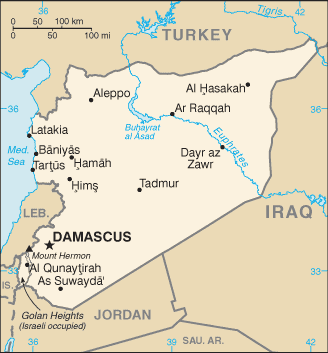After a few days of relative calm between the various rebel factions in Syria’s northwest, with the Jund al-Aqsa faction, a close ally of the Nusra Front, making a new push against the more moderate Islamist factions in the southern part of Idlib Province and the northern part of neighboring Hama Province.
 Such infighting among rebel groups has been picking up the pace recently, with Jund al-Aqsa reportedlyy making rapid gains in this new fighting. The losses further weaken the moderate rebels who were involved in the peace talks, weakening their position as representatives of the overall rebellion.
Such infighting among rebel groups has been picking up the pace recently, with Jund al-Aqsa reportedlyy making rapid gains in this new fighting. The losses further weaken the moderate rebels who were involved in the peace talks, weakening their position as representatives of the overall rebellion.
The Nusra Front started the fight against the moderates a couple of weeks ago, accusing them of “conspiracy” for participating in the peace talks. Both sides quickly started massing coalition partners in the area, though the less moderate faction clearly has a substantial advantage.
Idlib Province and its vicinity is the main holding for all non-ISIS rebels at this point, and recent evacuation deals were adding more and more rebels to the area. The fighting both imperils civilians stuck in the area, and the possibility of future evacuations is clearly harmed by the ongoing fighting.


